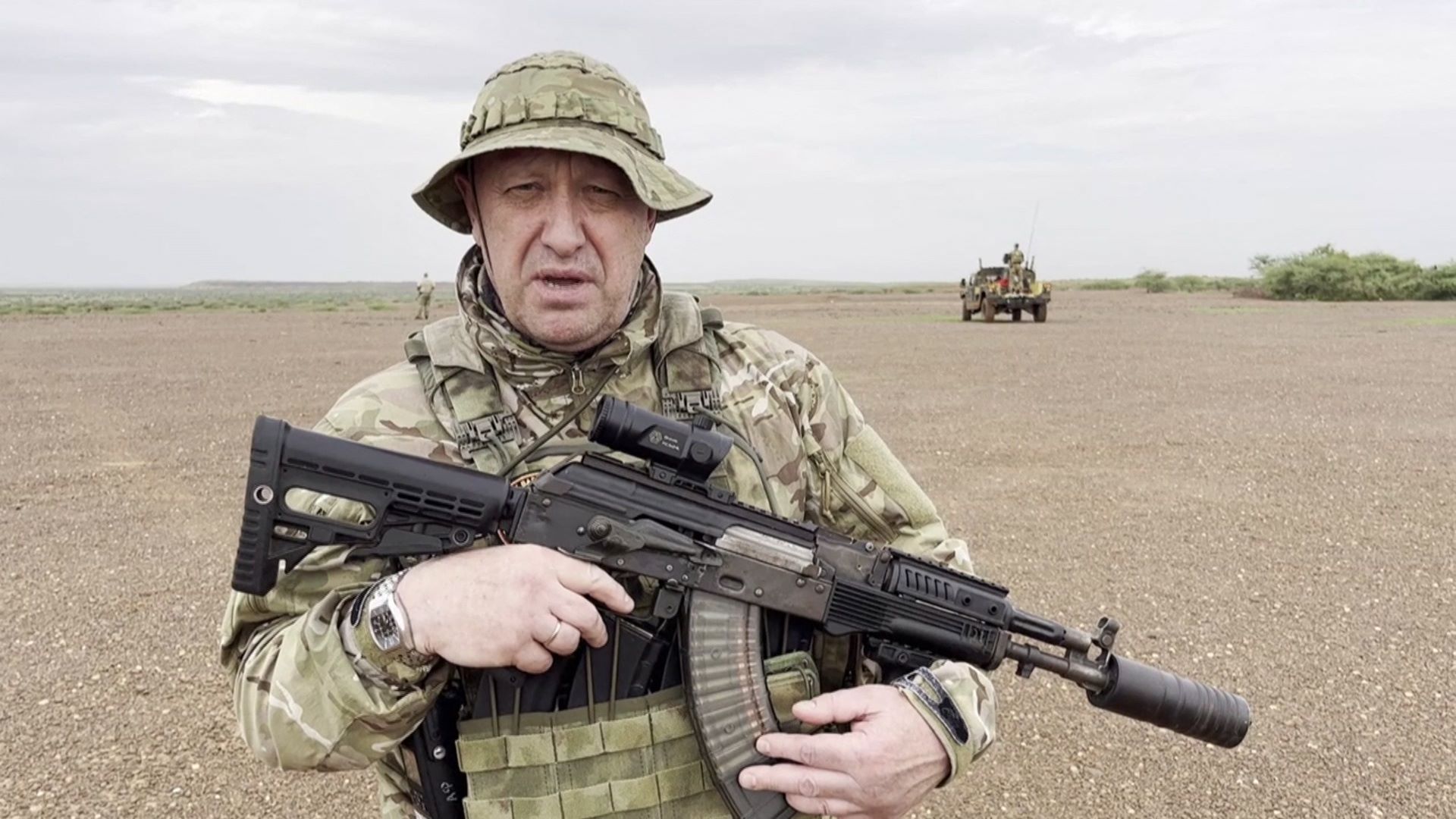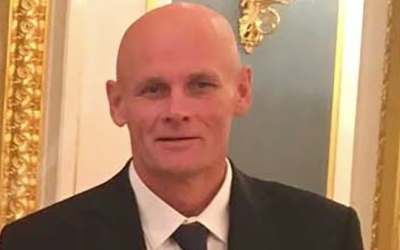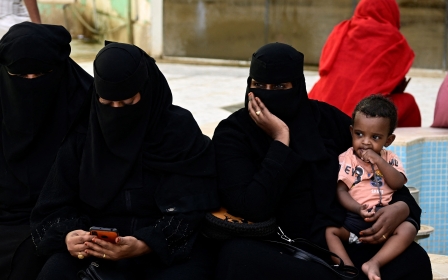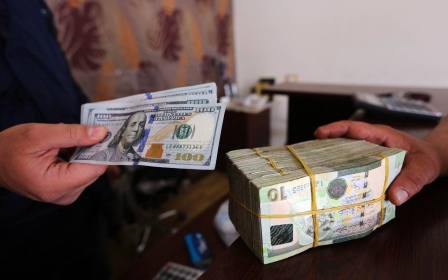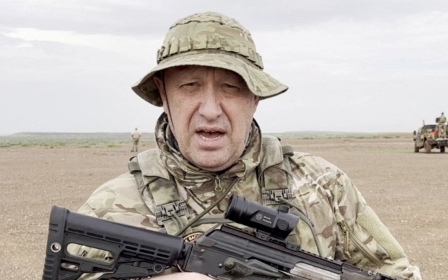Yevgeny Prigozhin: What does Wagner leader's death mean for Hemeti and Haftar?
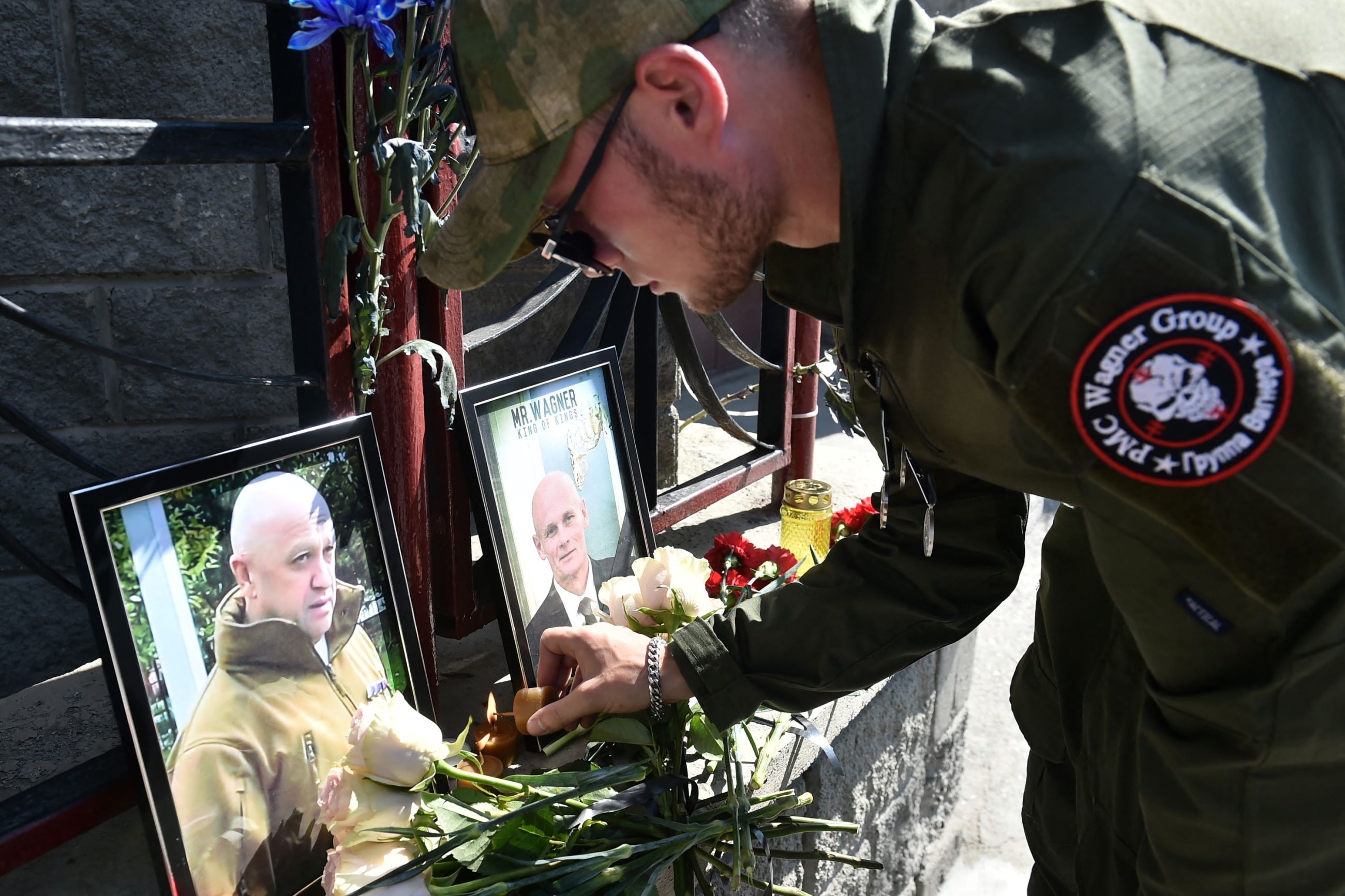
The sudden and suspicious death of Wagner Group leader and Putin critic Yevgeny Prigozhin in a plane crash on Wednesday has people wondering what the fate of his fighters and networks in Russia, Ukraine, the Middle East and North Africa will be.
None more so, perhaps, than Mohammed Hamdan Dagalo, the Sudanese paramilitary leader known as Hemeti, or eastern Libyan warlord Khalifa Haftar, both of whom are high profile associates of the caterer-mercenary.
In Libya, Wagner Group fighters provided support to Haftar, backing him in his failed 2019-2020 assault on Tripoli and currently bedded into key sites like oil installations.
In neighbouring Sudan, Wagner operatives have worked alongside Hemeti's Rapid Support Forces (RSF), a paramilitary group currently engaged in an armed conflict with the Sudanese Armed Forces (SAF).
Middle East Eye has also previously reported on massacres carried out by Wagner fighters around gold mines in the Central African Republic, while the United States has accused the group of pilfering billions of dollars worth of gold from Sudan - with much of it allegedly making its way to the United Arab Emirates and Russia.
New MEE newsletter: Jerusalem Dispatch
Sign up to get the latest insights and analysis on Israel-Palestine, alongside Turkey Unpacked and other MEE newsletters
Ashok Swain, head of the Peace and Conflict Research Department at Uppsala University in Sweden, told Middle East Eye that the death of Prigozhin would have a "profound impact" on the Wagner Group's activities, as well as Russia's links in North Africa.
"The ongoing civil war between the Sudanese army and the paramilitary group has considerably heightened the complexities surrounding the Wagner Group's operations. Prigozhin not only represented the group externally, but also played a pivotal role as a negotiator and problem solver," he said.
"We must now await the appointment of Prigozhin's successor, who will steer the Wagner Group. The extent to which this new leader garners the support of Putin remains to be seen."
Wagner and the RSF
The Wagner Group first appeared in Sudan during the rule of longtime autocrat Omar al-Bashir and was heavily involved in protecting important mineral resources, such as gold mines.
Its operatives were later accused of aiding Bashir's government in trying to suppress pro-democracy demonstrations in 2019, though Bashir was ultimately forced from power.
Since the Sudanese war broke out in April 2023, numerous reports have emerged suggesting Wagner was throwing its weight behind its established ally the RSF, though the latter has repeatedly denied the group's involvement.
'I think the biggest loser aside from Prigozhin is Hemeti in Sudan'
- Cameron Hudson, analyst
"I think the biggest loser aside from Prigozhin is Hemeti in Sudan," said Cameron Hudson, a former US diplomat and CIA analyst.
Wagner reportedly provides the RSF with surface-to-air missiles, which have enabled it to counter the aerial power of the SAF, as well as numerous other weapons.
Hudson told MEE that the RSF's reliance on foreign supply lines to continue prosecuting the conflict in Sudan - which has seen more than 5,000 people killed and millions displaced - meant that a sudden loss of a key ally could prove disastrous.
"Will we see the RSF as aggressive as in the last few weeks? Will we see them even trying to hold their positions in Khartoum? They have constant fear that their supplies lines are going to get shut down," he said.
Kremlin alternatives?
The group's operations in Libya have been much more public.
Wagner fighters played a key role in Haftar's Tripoli offensive, initially giving it new impetus before the tide eventually turned against him. Their defensive fortifications in central Libya helped stave off the prospect of a counterattack when the offensive collapsed, and Wagner fighters are believed to remain in Libya in their hundreds, alongside Syrians they employed.
Just a day before the death of Prigozhin, Russian military officials, including the deputy defence minister, visited Haftar in Libya, in what they said was the first official visit of a military delegation to the country.
The groundwork for a post-Prigozhin future was likely already being laid by the Kremlin, argued Alia Brahimi, a non-resident senior fellow at the Atlantic Council.
"Unfortunately, beyond the 'charisma' of the man himself, there's a whole architecture that's still in place and in play, and it's unlikely that we'll see a significant impact on the Wagner Group's activities in Libya and Sudan," she told MEE.
"Plus, the Kremlin has had weeks to lay the ground for Prighozin's removal and obviously felt confident in the timing."
She added that, particularly with the rise of coup-led governments in sub-Saharan Africa, there would still be plenty of "clients" for Russia, even without Wagner as the go-between.
"These militarised regimes didn't call in the Wagner Group because they liked the cut of Prighozin's jib. They had problems, and Wagner had solutions. It's just that now the Russian state has been outed as the service-provider."
MEE asked the RSF for a comment on the Wagner leader's death, but received no reply by time of publication.
Uncertain future
Since he came to power in 2000, many high profile Russians have learned that crossing Putin comes at a very high risk.
While there has been no confirmation of what caused the crash that killed Prighozin, many - including US President Joe Biden - have been quick to point the finger at the Russian president.
But for Putin as well, the death of the Wagner Group leadership and the potential terminal harm it could cause the mercenary group, will have consequences.
For years the organisation was Russia's primary source of brute force and influence in Africa, as well as a crucial go-between for military leaders. Without such a proxy, Russia will have to take a more direct role.
Hudson noted that, aside from Tuesday's visit to Libya, Russia had been reaching out to African leaders since Prighozin led a fleeting mutiny in June, attempting to reassure them of continued Russian support.
The question now, he said, is what Putin will decide to do with Wagner's assets, including its lucrative gold-smuggling business.
"Does he allow Wagner to continue with new leadership or does he try to absorb Wagner and all of its assets in these countries and operate them as subsidiaries of the Russian military?" asked Hudson.
Hudson added that there was still value in having an informal military company operating on the continent, self-financing itself through client relationships, adding that "that money makes its way back to Russia which benefits the economy", which is currently being battered by western sanctions.
"My guess is that Putin will try to bring under more direct and reliable control Wagner entities under Russian leadership - but at the same time will find it helpful to have plausible deniability."
This article is available in French on Middle East Eye French edition.
Middle East Eye delivers independent and unrivalled coverage and analysis of the Middle East, North Africa and beyond. To learn more about republishing this content and the associated fees, please fill out this form. More about MEE can be found here.


